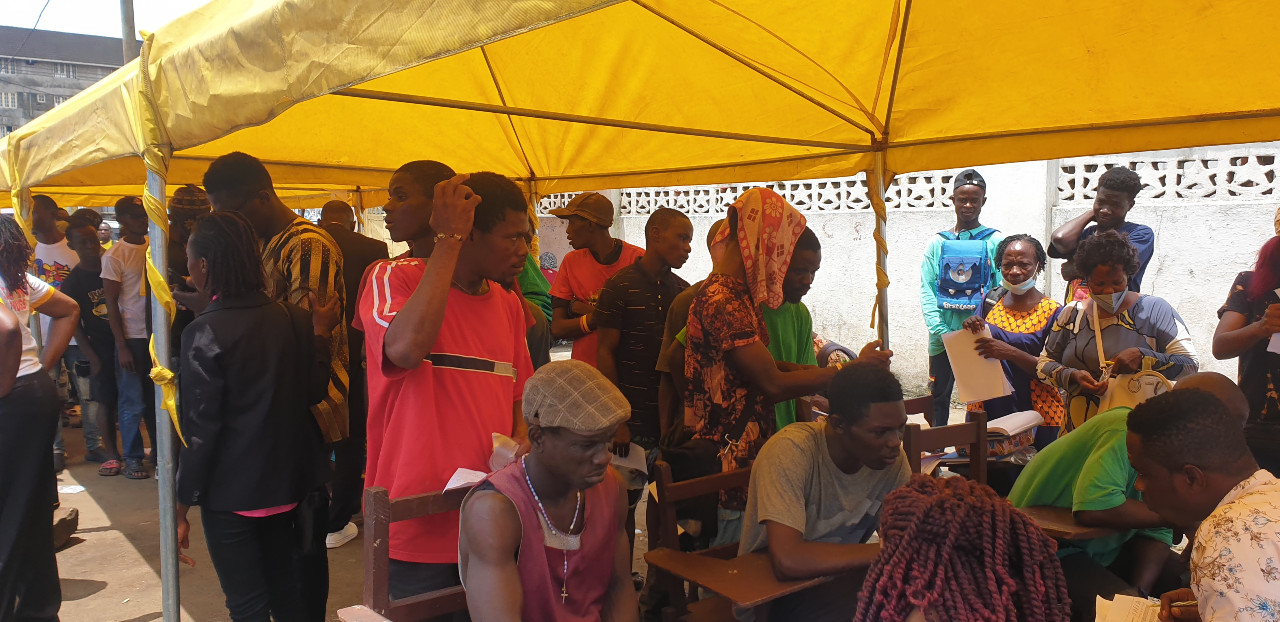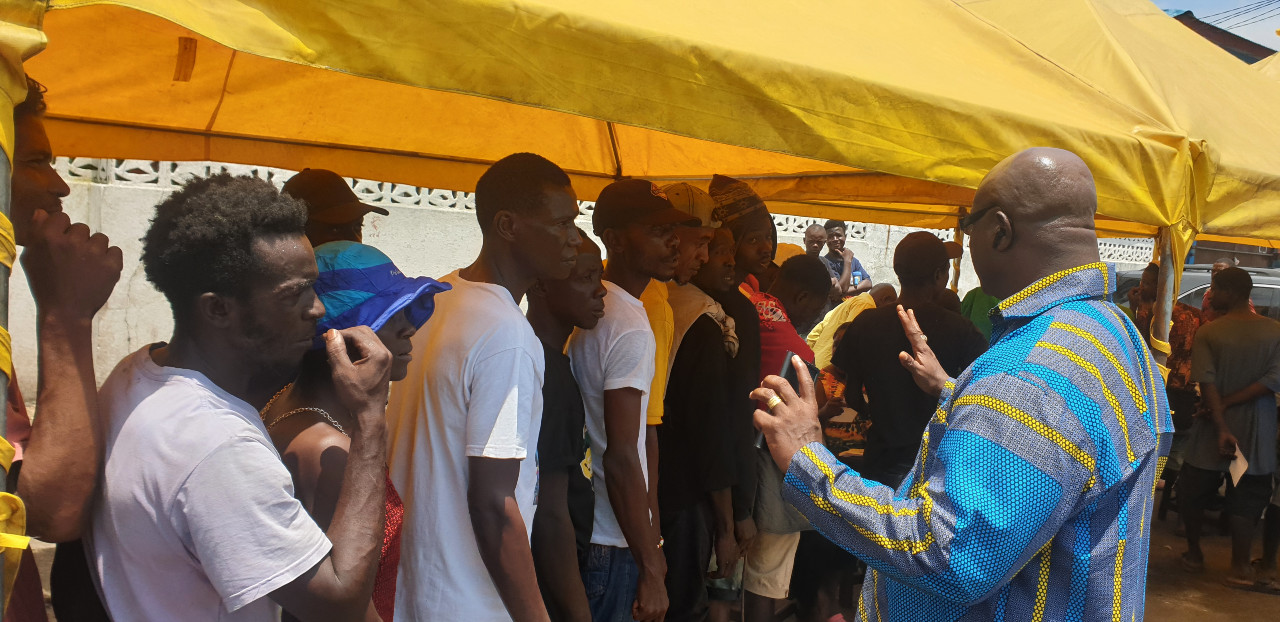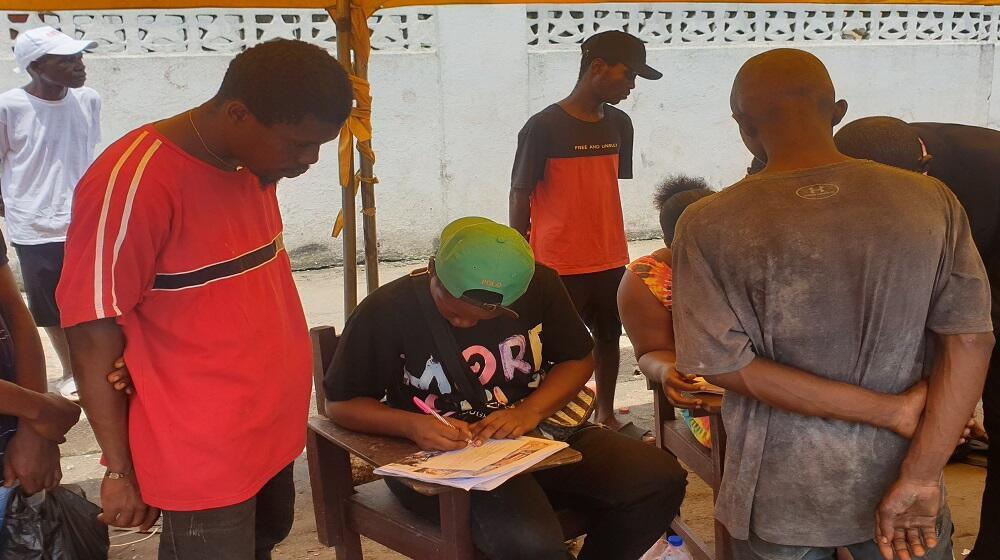Monrovia, Liberia -- This is the opportunity I have been yearning for. I can’t allow this to pass me by,” says Mike as he joins his colleagues waiting to be registered and enrolled in the Joint UN/Government of Liberia At-Risk Youth Rehabilitation and Empowerment program.
According to Mike, age 24, who says he has been on harmful substances for the past ten years, he had long yearned to receive help. “I want to desist from this bad habit [use of illicit drugs) but it has been difficult for me. Drug addiction is bad. When that craving comes, I can do anything to get money to buy drugs to satisfy myself,” Mike added.
With ten years in the ghetto, Mike has established himself as the leader of one of the many gangs of violent youths operating in central Monrovia, the Capital. Members of these gangs live at street corners, graveyards, and abandoned buildings across the city.
However, according to him, stopping using illicit substances and reuniting with his family outweigh the benefits of leading gang members. “I know that from here, I will no longer be a Four-Star [leader of a group of gangs). But on the other side, I will become a better person for myself and my family. I miss my son a lot. I have not been going around him because of my drug addiction,” Mike says.

in central Monrovia ©UNFPA Liberia/Calixte Hessou.
Mike is among a group of disadvantaged youths on drugs who have volunteered to be rehabilitated under the “At-Risk Youth” empowerment programme by the Government in collaboration with the United Nations and other partners launched in June 2022 and is currently in the implementation phase.
Jointly funded by the Government of Liberia and the United Nations through the Peacebuilding Fund, the programme seeks to empower marginalized youths, especially youths using drugs and other substances, with economic livelihood skills, give them the agency and voice to contribute to peacebuilding, and hold state actors accountable. At the helm of this desired goal is helping young people to do away with the use of illicit drugs through comprehensive behavior change and drug prevention interventions, mental health support for those already hooked on drugs, SGBV prevention, rehabilitation, and economic livelihood interventions; while simultaneously partnering with marginalized youths and their communities to support their reintegration into families and communities, reduce stigma, champion peace messages and support various interventions to promote peaceful co-existence and social cohesion within communities.
According to Liberia’s government ministries and agencies leading the programme's implementation, about one thousand at-risk youth have been targeted for recruitment for comprehensive care under phase one of the initiative. “We want to ensure that individuals that will be recruited are treated for diseases they may have before detoxification and rehabilitation, says Health Minister Dr. Wilhelmina Jallah. The rehabilitation process will include psychosocial counseling for social reintegration and skills training.

registration to remain peaceful. ©UNFPA Liberia/Calixte Hessou.
“The Government believes that leaving the plight of disadvantaged youths across Liberia unattended is a recipe for insecurity and health risk,” Youth and Sports Minister D. Zeogar Wilson added.
"Today, nearly 60 percent of Liberia’s more than 5 million people are under 25. No matter where they are, the lives of these young people are shaped by forces beyond their control. They must be given opportunities to claim their agencies and empowered with skills for decent employment. This is the only surest way Liberia can be assured of a transformative future,” says UNFPA Representative Bidisha Pillai.



